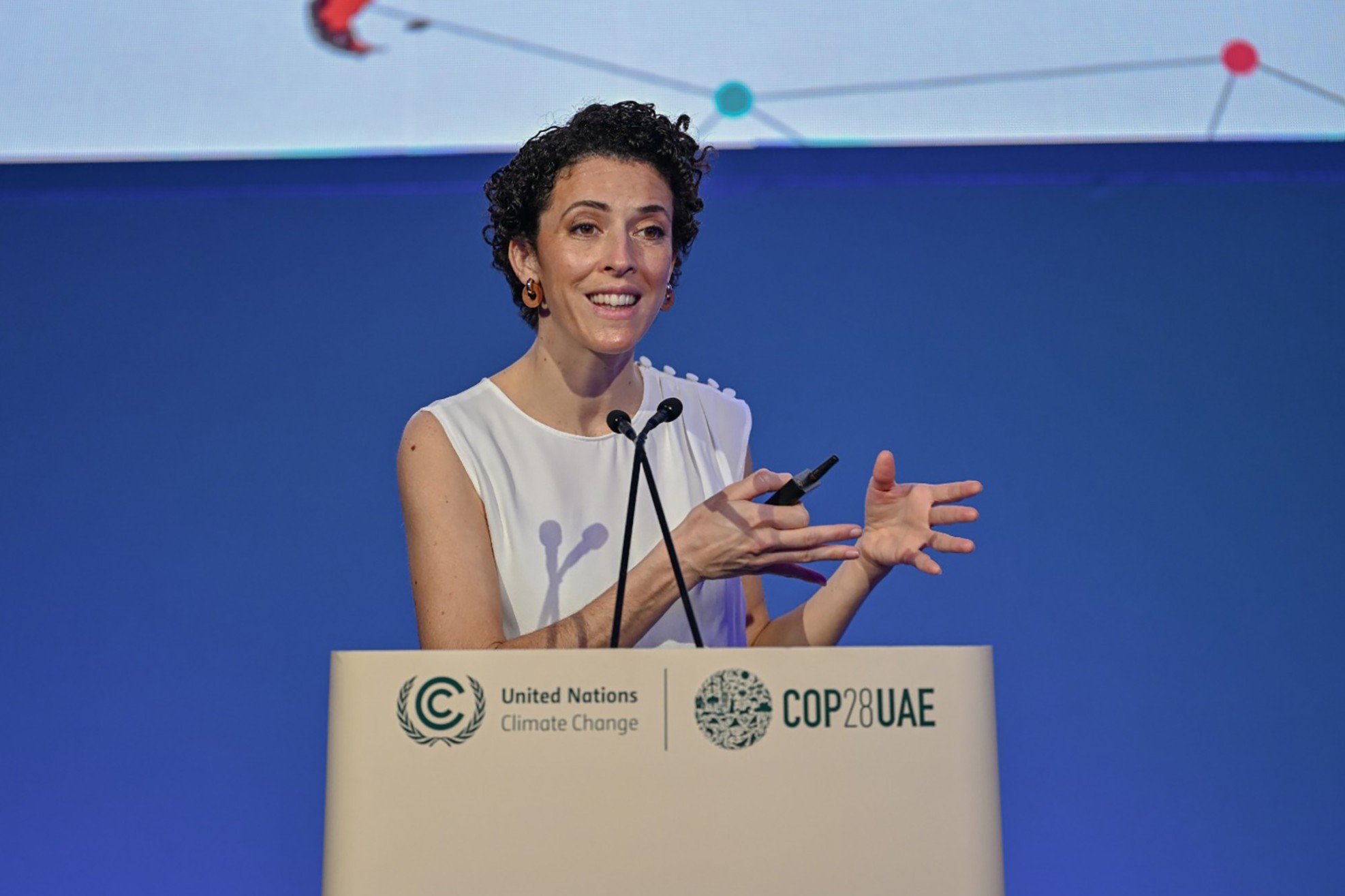Putting Human Health at the Centre of Climate Action
Marina Romanello
University College London, United Kingdom
Winning article: The 2023 report of the Lancet Countdown on health and climate change: the imperative for a health-centred response in a world facing irreversible harms (The Lancet, 2023)
“As human activities repeatedly breach planetary boundaries, the cost is being measured not just in environmental degradation, but in human lives—through worsening health, rising mortality, and deepening inequalities.”
Decades of research have detailed the multiple and compounding ways in which anthropogenic climate change is affecting the foundations of human health and wellbeing; deteriorating the water and natural ecosystems we depend on, our food and nutrition, the air we breathe, critical infrastructure, and the social and economic conditions on which health and wellbeing depend. The resulting impact on people’s health, well-being, and survival is the common endpoint of the human-driven deterioration of our environment.
However, despite the evident connection between health and climate change, the broader climate change narrative has often focused on the impacts on ecosystems, infrastructure, inanimate landscapes, and non-human animals, thereby excluding impacts on people – and their health – from the discussion, despite the human-framed outputs of climate action having been shown to bolster support (Dasandi et al., 2022).
Indeed, the 2023 report of the Lancet Countdown showed that only 24% of news articles mentioning climate change also made mention of the links with human health, and that very few people engage with the links between health and climate change. As a result, individuals are not adequately engaged with climate change, and health professionals are not involved in shaping the interventions that could most radically affect the health profile of present and future populations.
Addressing this challenge, Lancet Countdown on Health and Climate Change brings together over 300 researchers from around the world to put human health at the centre of how we understand and, importantly, respond to climate change. The 2023 report of the Lancet Countdown was the 8th in our series and, celebrating the Lancet’s 200th anniversary, the most ambitious yet. Bringing together 113 researchers from around the world, the paper takes stock of the state of health and climate change through 47 indicators presented at a global and regional level.
These indicators exposed the growing health impacts of climate change to date, driven by a rising exposure to increasingly extreme temperatures and weather conditions, the growing climate suitability for the transmission of deadly infectious diseases like malaria, dengue, and vibriosis, and the increasing threats to food security and nutrition. For the first time, the paper also presented a comprehensive projection of the risks to human health that can be expected if human activities continue to transgress the world’s climate boundary.
Figure 1: The 2023 Report of the Lancet Countdown on Health and Climate Change: The imperative for a health-centred response in a world facing irreversible harms
Presenting the assessment at a global, as well as a regional level, the report also exposed how climate change exacerbates regional health inequities, and the particular opportunities and needs for climate action in different world regions. In addition, the paper also quantifies the often-disregarded economic dimensions of the health impacts of climate change. It shows that, in 2022, heat exposure led to global potential income losses worth $863 billion, with low Human Development Index (HDI) countries facing potential income losses equivalent to 6.1% of their gross domestic product (GDP), and average heat-related mortality leading to losses equivalent to $164 billion on average in 2018–2022, 146% higher than the 2000–2004 average.
With a view to empower evidence-based action, the indicators presented the enormous potential gains of transitioning to a system that operates within the world’s climate boundaries, if health gains are prioritised in its design. A detailed analysis of the contribution of fossil fuel burning to air pollution revealed the main activities that contribute to air pollution-related deaths at a country level, providing evidence to guide the sectoral interventions that could most effectively help tackle greenhouse gas emissions, while maximising the lives saved from improved air quality within each country. Similarly, the report exposed the 12.2 million deaths associated with carbon-intensive, unhealthy diets at a country level, which could be prevented by decarbonising our food systems.
Far from offering a passive stocktake, this paper’s quantification of present and potential future health-related losses and damages from climate change, and of the potential health gains that climate action can deliver, informs priority actions to deliver a healthy, liveable future, from the global to the sub-national level. From the evidence presented, 11 globally applicable, actionable policy priorities were formed to provide a pathway to promote and improve people’s health as the world pursues efforts to address the challenges of climate change.
By disseminating findings through the Lancet Countdown’s online data platform, data has similarly been used in the development of national-level and sub-national recommendations for action, and on numerous occasions helped inform national policies, including those laid out in National Adaptation Plans and Nationally Determined Contributions. Importantly, the economic data provided can inform an evidence-based and comprehensive cost-benefit assessment of climate action, which takes the multiple potential avoided health harms, potential health benefits, and their associated economic implications into account – essential for governments to adequately assess the opportunities of tackling climate change. Indeed, the evidence presented has been used by the Climate Vulnerable Forum to support the world’s most climate-vulnerable countries in better understanding the health-related losses and damages they face, the priority needs for adaptation actions, and their financial requirements to protect their populations from growing climate harms.
The impact of this report comes from not only the findings presented but also the approach shared, the connections made, and the policies implemented as a result. Acting as a knowledge broker, the Lancet Countdown has shared the indicators in this report as a foundation for countries to develop their climate and health risk assessments and to incorporate health considerations within their climate observatories. In that sense, they are active tools for accountability, risk identification, policy evaluation, and evidence-based planning for national and sub-national governments, as well as individuals.
At the international level, we are engaging with key actors, including the WHO and key global multi and bilateral funders, to support the use and adoption of these indicators to inform the allocation of funding and the prioritisation of climate adaptation and mitigation actions that can most efficiently tackle climate change, whilst maximising the benefits to health and wellbeing.
These indicators can be adopted and used by civil society organisations, governmental organisations, and funders to identify priorities for climate action at a national and local level, and to identify the substantial economic and health benefits that would make those interventions not only desirable, but also cost-effective. By scaling up the use of these indicators, we can help ensure actions to tackle climate change are not only protecting our infrastructure and economies, but mostly what matters to us the most: the health and well-being of all populations.
Ultimately, the actions needed to ensure a healthy future within our planet’s climatic boundaries require a profound transformation of most human-made systems. While a major challenge, we have evidenced that such a transformation, if anchored on health, could deliver transformative benefits for human health through stronger, more resilient health systems, improved air, water, and food quality, reduced energy poverty, more liveable cities, and minimised global health inequities. The potential to deliver these health gains could make our response to climate change the biggest global health opportunity of the century (Watts et al., 2015).
Figure 2: Marina Romanello speaking at COP28 UAE.
References
Dasandi, N., Graham, H., Hudson, D. and others, 2022. Positive, global, and health or environment framing bolsters public support for climate policies. Communications Earth & Environment, 3, p.239.
Watts N, Adger WN, Agnolucci P. Health and climate change: Policy responses to protect public health. Lancet. 2015; 14: 466–8.




